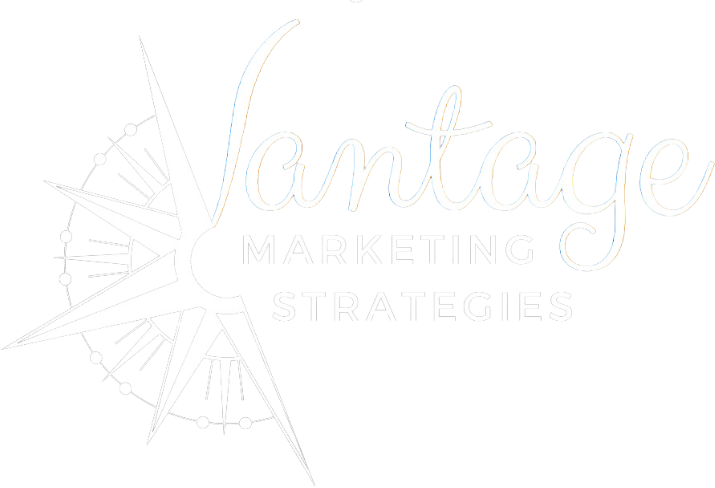Marketing agencies can be a valuable resource for businesses looking to expand their reach, increase brand awareness, and generate leads. However, not all agencies are created equal, and their approach may not always align with what’s best for your company’s unique needs. Before signing a contract, it’s important to understand the potential challenges and ensure that the agency’s strategy is a good fit for your business goals.
Here are some key considerations to keep in mind when evaluating a marketing agency partnership.
1. Tactical Focus vs. Strategic Alignment
Many agencies specialize in specific marketing tactics—such as search engine optimization (SEO), pay-per-click advertising (PPC), or social media management. While deep expertise in these areas can be beneficial, agencies often prioritize the services they excel in rather than evaluating all available options.
“A great marketing strategy isn’t about doing everything—it’s about doing the right things in the right order.”
Instead of asking, “What services does the agency provide?” consider asking, “How will this agency integrate its efforts into a broader business strategy?” An effective marketing plan should be built around business goals, not just individual tactics.
2. Reporting and Metrics That Matter
Most agencies provide reports, but the metrics they emphasize may not always align with what truly drives business success. For example, an agency might highlight impressions, clicks, or engagement rates—while these are useful indicators, they don’t necessarily translate to revenue or customer acquisition.
It’s important to ensure that the agency is tracking meaningful performance indicators such as:
- Cost per lead (CPL)
- Customer acquisition cost (CAC)
- Return on investment (ROI)
- Lead conversion rates
Ask the agency how they define success and how they measure the impact of their campaigns on your bottom line.
3. Integration With Sales and Operations
Marketing doesn’t operate in a vacuum—it should be seamlessly connected with sales and operations. However, many agencies focus solely on delivering campaigns without considering how marketing supports the sales funnel, customer experience, or long-term business objectives.
A well-integrated approach ensures that:
- Marketing messages align with the sales process.
- Leads generated by marketing efforts are nurtured effectively.
- Customer feedback loops inform future marketing decisions.
When interviewing agencies, ask how they work with sales teams, track lead quality, and ensure a smooth handoff from marketing to sales.
4. Customization vs. Pre-Packaged Solutions
Some agencies offer pre-designed marketing packages that may not fully align with your company’s goals or industry needs. While these standardized approaches can work in some cases, they often lack the flexibility to adapt to specific business challenges.
Consider whether the agency is tailoring its strategy based on:
- Your industry’s competitive landscape.
- Your target audience’s unique behaviors.
- Your company’s long-term growth plans.
Look for an agency that takes the time to understand your business before prescribing solutions.
5. Ownership and Accountability
Agencies can be highly effective at executing campaigns, but the responsibility for results often remains unclear. If something isn’t working, who takes accountability—your internal team or the agency?
Before signing a contract, clarify:
- Who is responsible for tracking and optimizing performance?
- How often results will be reviewed and adjusted?
- What happens if the expected outcomes aren’t met?
Establishing clear accountability ensures that marketing efforts remain aligned with business objectives.
6. Vendor and Budget Management
Many businesses work with multiple agencies for different marketing needs—one for branding, another for digital advertising, and another for content creation. Managing multiple vendors can create inefficiencies, especially if strategies are not aligned.
Additionally, marketing agencies often have an incentive to recommend higher ad spends, premium tools, or additional services that may not be essential. Having an internal advocate who understands marketing costs and ROI can help ensure that budgets are optimized and resources are used effectively.
7. The Challenge of Brand Immersion
Your brand is more than just a logo or a social media presence—it represents your company’s values, mission, and voice. Agencies that work with multiple clients may struggle to fully immerse themselves in your brand, leading to messaging that feels generic or disconnected from your audience.
When choosing an agency, consider:
- How well they understand your industry and target audience.
- Whether they’ve worked with similar businesses before.
- How they plan to capture and maintain your brand’s unique voice.
8. Long-Term Growth vs. Short-Term Wins
Some marketing agencies focus on quick wins—driving traffic, boosting engagement, or generating short-term leads. While these results can be valuable, sustainable growth requires a long-term strategy that builds customer relationships and brand loyalty over time.
Look for an agency that balances immediate campaign performance with:
- Content and thought leadership strategies.
- Customer retention and loyalty programs.
- Brand positioning for long-term success.
9. Agility and Adaptability
Marketing is an ever-changing field. What worked a year ago may not work today, and new opportunities arise regularly. Large agencies, especially those with rigid processes, may struggle to pivot quickly when strategies need to change.
When evaluating an agency, ask:
- How do they stay ahead of industry trends?
- How do they handle shifts in market conditions or unexpected challenges?
- Can they adjust strategies without major delays or additional costs?
A Smarter Approach to Marketing Leadership
Marketing agencies play an important role in executing campaigns and providing expertise in specialized areas. However, they may not always offer the holistic strategy, integration, and accountability that businesses need to maximize their marketing investment.
For companies looking for a more strategic and flexible approach, working with an internal marketing leader or a fractional CMO can provide a higher level of oversight and long-term value. A fractional CMO brings executive-level expertise, ensures that all marketing efforts align with business goals, and helps businesses make more informed decisions about agency partnerships.
By carefully considering these factors before hiring a marketing agency, business leaders can ensure they choose the right partners and build a marketing strategy that drives real business results.

